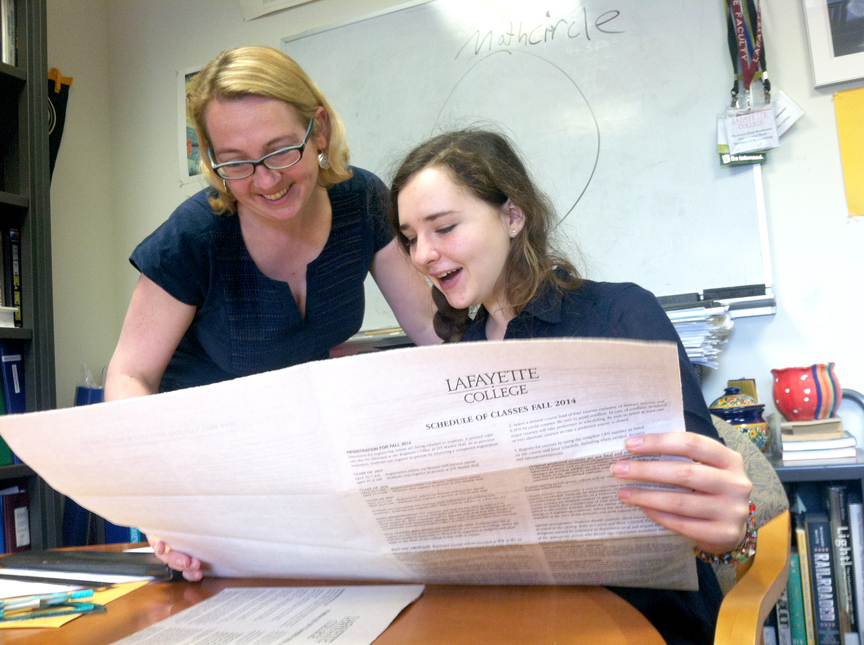Photo by Hana Isihara ‘17
As colleges and universities frequently try to improve their institutions, academic experts are considering whether administrators and faculty work best as advisors, or if using full-time professionals to counsel students would be more valuable.
According to a recent New York Times article by Jeffrey Selingo, only about 18 percent of universities currently use a faculty-only advising system. Twenty-two percent use full-time professionals only, while the rest have a combination of the two.
Lafayette’s advising program doesn’t fit any of those categories, as it is comprised of 170 members of both faculty and administrators, but not professional counselors.
According to Dean of Academic Advising Erica D’Agostino, most of Lafayette’s advisors hold a doctorate degree and taught at the college for several years before becoming advisors. In order to keep the advisors updated with the evolving curriculum and requirements of the Common Course of Study, formal training is held every August.
“The workshop is a full day event that covers a variety of topics, including articles on advising, the common course of study, referral sources on campus, important dates, etc.,” D’Agostino wrote in an email.
Particularly for the first two years of advising, when students have not yet declared a major, D’Agostino is confident in the advising department’s abilities to successfully counsel students.
“We have an incredibly strong faculty, all of whom are knowledgeable about the common course of study and the experiences that are important for a student to consider during their first few years,” she wrote.
“Many schools have a hybrid advising system where faculty and advising professionals work with students, and certainly I can see value in that system,” D’Agostino wrote. “At the same time, Lafayette prides itself on being an institution where students have close access to their faculty and are able to develop close relationships with them.”
D’Agostino said she believes that having a system without faculty advisors would not allow students to create a more personal relationship with their professors.
“I don’t believe that kind of relationship would develop,” she wrote.
Film and Media Studies professor and advisor Andy Smith expressed a similar hesitance towards advising using only professionals.
“I think a good deal would be lost, because what I want to talk to students about is their interests and how the courses are fitting together,” he said.
According to Professor Smith, professionals would perhaps place more emphasis on requirements of the department and not focus on student’s interests.
With the faculty and administration leading the advising system, there is also more of an opportunity for communication among advisors, he claimed.
“I think what typically happens is you learn the details from other faculty members,” he said. “The Registrar is also extremely helpful in guiding you. You’ve got people who’ve been around in your home department, whatever that is, for some time and they know what needs to happen.”
Professor Lee Upton, who both teaches and advises English students, also feels the close collaboration between faculty members is very valuable in the advising system.
“I think we’re all very familiar with our own departments and the curriculum changes regularly so we continually upgrade our knowledge,” she said. “We also have to be in contact with other departments to figure this out.”
Both professors feel full-time professionals would not resonate with the students as well as faculty members and administrators do.
“What we’re ultimately trying to do in terms of the overall goals of the class and the overall goals of the major,” Smith said. “I just think it’s tough to know those things unless you’re actually in the classroom.”
“What advisors are particularly useful for is giving information about the specific field and specific career possibilities,” Upton said. “It’s especially useful within one’s own discipline.”




































































































